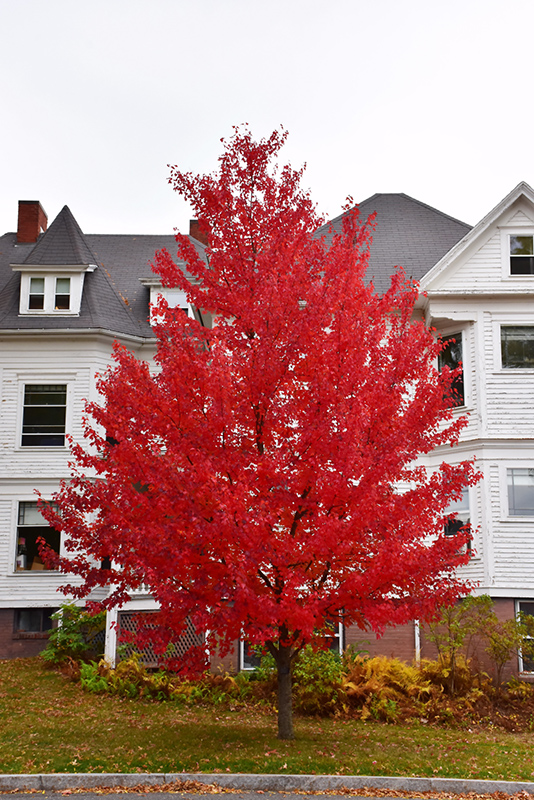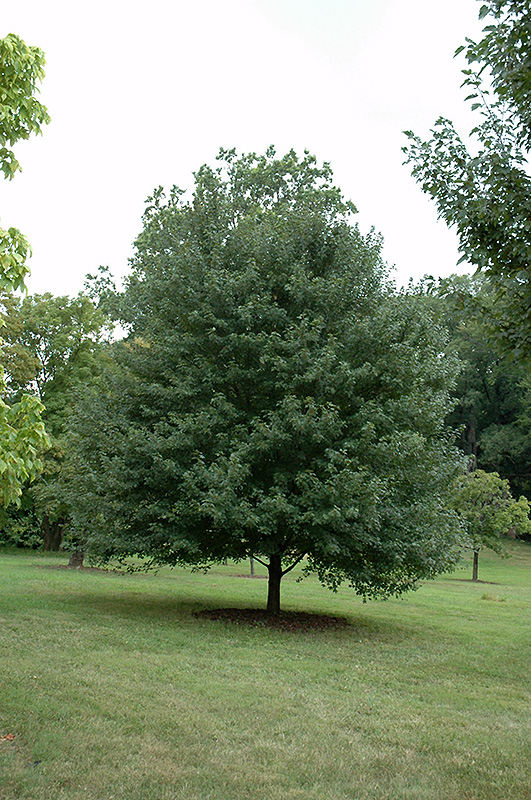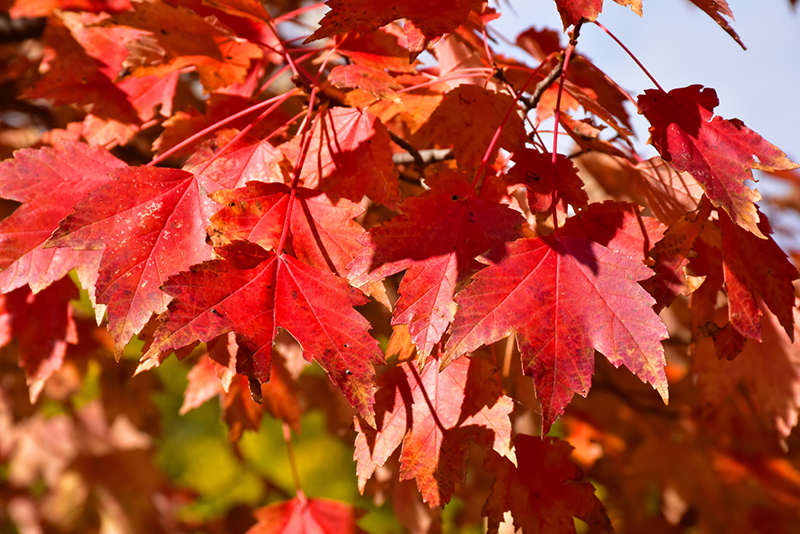>> Home
Sun Valley Red Maple
Acer rubrum 'Sun Valley'
Height: 50 feet
Spread: 35 feet
Sunlight:
![]()
Hardiness Zone: 4
Other Names: Swamp Maple, Scarlet Maple
Description:
A showy fall-coloring accent tree for the home landscape, featuring an upright oval habit of growth, attractive red flowers in early spring, and brilliant red foliage in fall, a male variety that does not produce seeds; intolerant of alkaline soils
Ornamental Features
Sun Valley Red Maple features showy clusters of red flowers along the branches in early spring before the leaves. It has green deciduous foliage which emerges red in spring. The lobed leaves turn an outstanding scarlet in the fall. The furrowed silver bark and brick red branches add an interesting dimension to the landscape.
Landscape Attributes
Sun Valley Red Maple is a dense deciduous tree with a shapely oval form. Its relatively coarse texture can be used to stand it apart from other landscape plants with finer foliage.
This is a relatively low maintenance tree, and should only be pruned in summer after the leaves have fully developed, as it may 'bleed' sap if pruned in late winter or early spring. It has no significant negative characteristics.
Sun Valley Red Maple is recommended for the following landscape applications;
- Accent
- Shade
Planting & Growing
Sun Valley Red Maple will grow to be about 50 feet tall at maturity, with a spread of 35 feet. It has a high canopy with a typical clearance of 6 feet from the ground, and should not be planted underneath power lines. As it matures, the lower branches of this tree can be strategically removed to create a high enough canopy to support unobstructed human traffic underneath. It grows at a medium rate, and under ideal conditions can be expected to live for 80 years or more.
This tree should only be grown in full sunlight. It is quite adaptable, prefering to grow in average to wet conditions, and will even tolerate some standing water. It may require supplemental watering during periods of drought or extended heat. It is not particular as to soil type, but has a definite preference for acidic soils, and is subject to chlorosis (yellowing) of the foliage in alkaline soils. It is somewhat tolerant of urban pollution. This is a selection of a native North American species.


